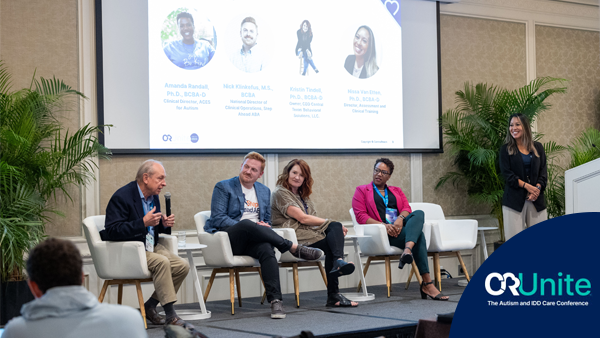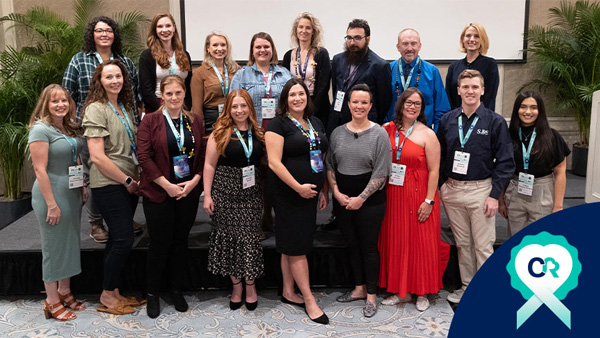When it comes to compliance, Applied Behavior Analysis (ABA) practices must always be prepared for changes that impact their business model and service delivery. One such change is Electronic Visit Verification (EVV), which impacts ABA practices that deliver Medicaid-reimbursed in-home services.
Below are some key questions pertaining to EVV that impact ABA providers, related to the state in which you render services and Managed Care Organizations (MCOs) that you may partner with. We encourage you to read on to gain further understanding about EVV and take the appropriate actions to start getting your practice ready to be compliant by your state deadline.
CentralReach is now integrated with Tellus in S. Florida.
CentralReach is now integrated with Tellus for ABA organizations operating in S. Florida. Using the CR Mobile App (for iOS and Android), users can collect the required EVV information. No need for a second system or device just for Medicaid payors, providers, and clients!
CentralReach is now integrated with Sandata in Colorado.
CentralReach is now integrated with Sandata for ABA organizations operating in Colorado, and will soon expand the Sandata integration to include additional services (Speech, Occupational Therapy, Physical Therapy) and to additional states. Using the CR Mobile App (for iOS and Android), users can collect the required EVV information. No need for a second system or device just for Medicaid payors, providers, and clients!
What is EVV?
In an effort to combat fraud, Electronic Visit Verification was federally mandated in the 21st Century Cures Act in 2016. EVV was designed to help verify that services billed for home healthcare are for actual visits made. EVV mandates the collection and submission to a Medicaid-designated state agency of 6 key points of data, plus an audit trail, that will help prevent fraud by verifying in-home visits match the authorization.
Is there a deadline for EVV compliance?
To quote the Centers for Medicare and Medicaid Services (CMS), “The Cures Act requires states to implement an EVV system by January 1, 2020 (as amended by recent legislative action) for Personal Care Services (PCS) and by January 1, 2023 for Home Health Care Services (HHCS).”
Applied behavior analysis services fall under the PCS category and therefore under the January 1, 2020 deadline. But from there, things get a little bit more nuanced depending on the state or states you service. Here’s why.
Each state Medicaid system is responsible for compliance — and many states, despite their “good faith effort,” have experienced “unavoidable delays.” The majority of states have now filed and received “good faith exemptions” that have provided them later implementation deadlines.
Please note that some states have implemented different deadlines to ensure all providers are ready on time. We encourage you to check with your state Medicaid office for additional details pertaining to implementation date and more.
How can my practice become compliant with EVV?
To comply with EVV and continue billing Medicaid for in-home services, you will need a system to capture and track all required data. Then, that system must report that data in a manner compliant with your state Medicaid EVV model.
CentralReach has EVV-compliant solutions to effectively capture and track all this data and enable you to transmit it to state Medicaid offices. Through invested research into the different state models and best-in-class development to deliver technology solutions, we are honored to provide many ABA practices with EVV solutions that work with the trusted CentralReach systems.
Read on for additional considerations that could impact providers in specific states and/or with specific MCOs.
What data is required by EVV?
To verify a visit, EVV requires these 6 points of data to be captured, stored, and transmitted to the designated entity per your state requirements. This impacts scheduling, billing, and the therapy service start/end time for ABA practices billing Medicaid for at-home services.
The 6 points of data are listed below:
- The type of service performed (billing code)
- The individual receiving the service (first and last name & signature)
- The date of service provided (individual visit date)
- Geolocation of the service delivery (Longitude and latitude where service took place)
- Individual providing the service (BT’s and/or BCBA’s first and last name and signature)
- Time the service begins and ends (service start and end times with GPS verification)
Note: If you are concerned about in-home visits that include community outings, or community outings in general, CMS provided some clarifying details here.
It’s critical not just for ABA organizations to collect these 6 points of data, but also to have a robust solution that tracks this information against the requirements listed on the Medicaid authorization. The data points must match the authorization, or your claim may be rejected. CentralReach’s end-to-end solution includes technology to add correct billing codes to appointments, collect signatures, manage date and place of service (POS) through smart geolocation scheduling, check provider’s credentials against payor requirements, and much more.
Additionally, EVV solutions must include “reason codes” to document changes that occur after the appointment is scheduled. These “reason codes” are required for EVV and allow providers to select reasons/exceptions for why a service was rendered in a different location, with different start/end time, and so forth. CentralReach’s smart, end-to-end solution with integrated scheduling and billing goes a long way to help ABA practices achieve EVV compliance for Medicaid, and improve clean claims for better billing results across all payors.
How do different state Medicaid systems accept EVV data?
There are a few basic EVV models from state to state. Some states are “open” to accepting data from any EVV-compliant system, such as CentralReach. Others are “closed,” meaning you must use a designated system/vendor, making it more challenging for ABA practices to use the systems they know and trust to collect the required EVV data. To view up to date status of states, click here.
CentralReach has leveraged its technology expertise to advocate alongside you and make it easier to leverage our all-in-one ABA solutions to collect and submit EVV data for Medicaid claims.
The specific types of state EVV models are listed below:
- Open models:
- Open Vendor: Providers can use a state-sponsored vendor free of charge or choose another EVV vendor at their own cost.
- Provider Choice: Providers select their vendor of choice and are responsible for the cost.
- Closed models:
- State Mandated External Vendor: Providers must use a state-sponsored vendor.
- State Mandated In-House System: States build and manage their own EVV system that all providers must use.
- Managed Care Organization (MCO) Choice: MCOs select a vendor for all their agencies to use.
How can CentralReach help my practice with EVV?
CentralReach is committed to helping your practice meet and exceed compliance standards. Our cutting-edge solutions enable you to access your appointment, capture all 6 points of data, track and manage exceptions for the audit record, and help you deliver the data to your state Medicaid office (as defined on a state-by-state basis) to fully comply with the requirements.
While the landscape around EVV compliance and healthcare regulations continues to shift, you can rest confident in CentralReach.
CentralReach’s EVV commitment.
We continue to research and invest in solutions that meet the needs of hundreds of ABA practices who serve clients with Medicaid, or may consider serving clients with Medicaid. We are honored to be your dedicated partner in technology solutions that help you run, optimize, and scale your business to help individuals reach their full potential.
About CentralReach
CentralReach is the leading provider of Autism and IDD Care Software, providing the only complete, end-to-end software and services platform that helps children and adults diagnosed with autism spectrum disorder (ASD) and related intellectual and developmental disabilities (IDD) - and those who serve them - unlock potential, achieve better outcomes, and live more independent lives. With its roots in Applied Behavior Analysis, the company is revolutionizing how the lifelong journey of autism and IDD care is enabled at home, school, and work with powerful and intuitive solutions purpose-built for each care setting.
Trusted by more than 175,000 professionals globally, CentralReach is committed to ongoing product advancement, market-leading industry expertise, world-class client satisfaction, and support of the autism and IDD community to propel autism and IDD care into a new era of excellence. For more information, please visit CentralReach.com or follow us on LinkedIn and Facebook.
Media Contact:
CentralReach
pr@centralreach.com





